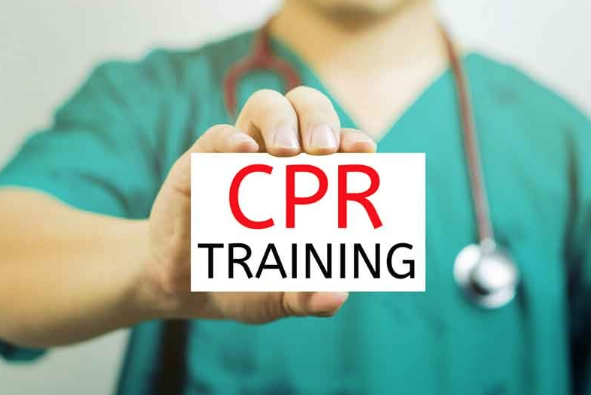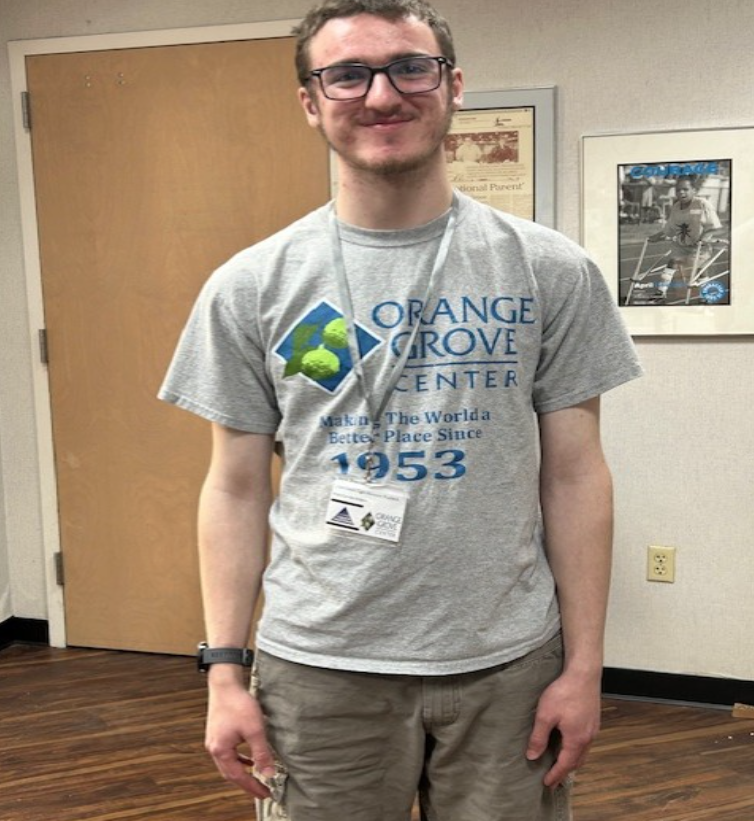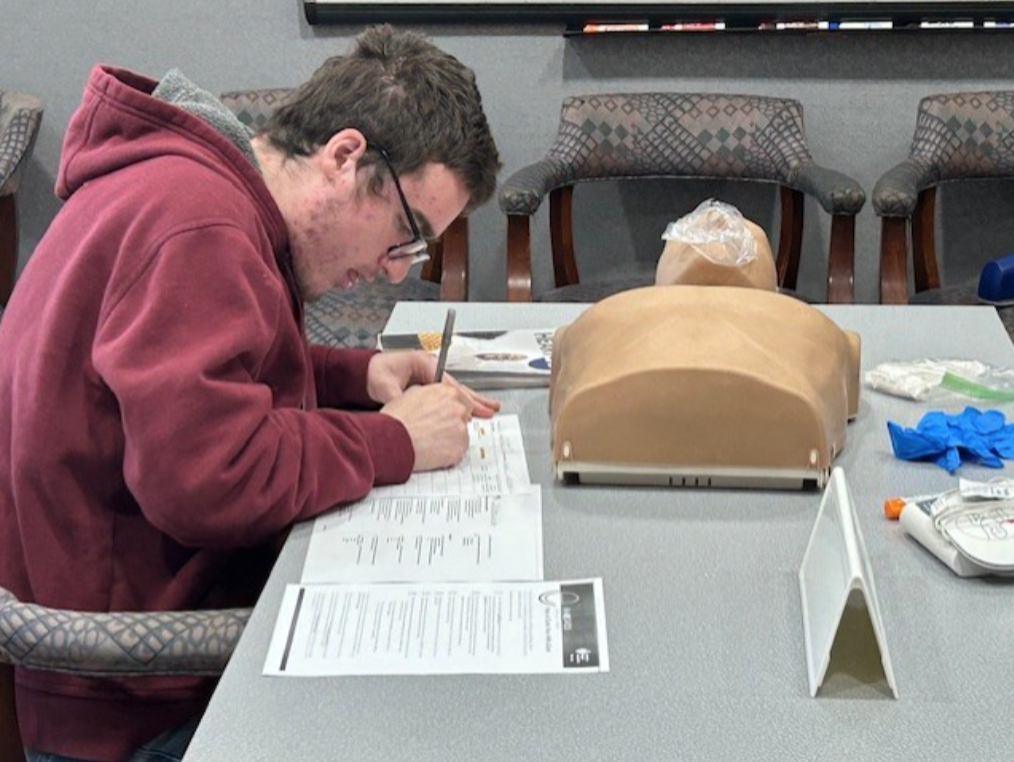You don’t know Jack!
Pictured: Man holding sign that says “CPR Training”
How an autistic CPR trainee overcame challenges to save lives.
By Rick Rader, MD, Editor-in-chief
In one year alone, 436,000 Americans die from cardiac arrest.
Approximately 356,500 out-of-hospital cardiac arrests occur across all age groups.
Almost 90 percent of these cases are fatal.
Why do so many people die in this situation? Because only 46 percent of out-of-hospital arrests get cardio-pulmonary resuscitation (CPR) from a bystander. It’s well known that immediate CPR can double or triple the chances of survival after cardiac arrest.
HELEN is proud to showcase the addition of a newly trained “bystander” who can perform CPR to someone experiencing cardiac arrest.
Pictured: Jack, a student enrolled in the Tiger Access Program at Chattanooga State Community College.
Meet Jack Sherlock. Jack is proud to show off his recently earned American Heart Association certification in cardio-pulmonary resuscitation.
Jack is a student enrolled in the Tiger Access Program at Chattanooga State Community College.
The program was established to provide two years of college experience, learning life skills, job training, self-advocacy, and independence for individuals with intellectual and developmental disabilities. Jack is quick to share that he is on the autism spectrum and often has challenges adapting to new situations, new people, and new expectations.
Part of the Tiger Access Program (Chattanooga State’s athletic teams have adopted the Tiger persona and hence the term “Tiger Access” was given to this innovative program) requires that the student performs an internship in a community setting where they can experience real-life challenges, opportunities, and experiences—all designed to prepare them for meaningful employment after graduation.
In Jack’s case, he wanted to perform his internship at the Orange Grove Center in Chattanooga, a community provider agency that supports individuals with intellectual and developmental disabilities, many of whom are challenged by the same obstacles that Jack experiences. Jack genuinely likes people and wanted to have a role in helping them to optimize opportunities that often take place outside their comfort zones.
Jack was accepted at Orange Grove and was made an assistant in their CHIP (Center for Health Inclusion and Promotion) Program. CHIP provides health-based activities including physical activities aimed at addressing stamina, mobility, balance, fall prevention, movement, strength training, healthy choices, health advocacy, and socialization.
In keeping with Jack’s interest in helping people, we approached him with the idea of enrolling in the Center’s CPR Training Course. All staff members are required to become certified in CPR, first aid, and other health related training.
Jack was enrolled with ten newly hired staff. Jack was given the training handbook, provided a mannequin, listened to lectures, practiced protocols, and watched videos. Jack performed the mechanics of CPR at an elevated level but was deficient in an acceptable time interval in transitioning in the chest compressions. The instructor failed him.
While disappointed, Jack was determined to earn his certification. Jack asked the instructor to provide additional practice sessions and enrolled in the next scheduled training class. Jack shared that he wanted to be prepared in the event he was able to “give someone a second chance.” Orange Grove gave Jack a second chance and he was successful in earning his CPR certification.
“Jack has joined the over 22 million people who have learned CPR worldwide. Jack’s determination to overcome obstacles and perfect and demonstrate his abilities is a testimony to the success of the Tiger Access Program. He serves as a model for including people with disabilities in learning life saving techniques.”
Pictured: Jack completing his CPR training
Jack is a welcomed and prepared bystander for all of us.
HELEN recommends that everyone should learn how to perform CPR….and to hang around with more people like Jack.



